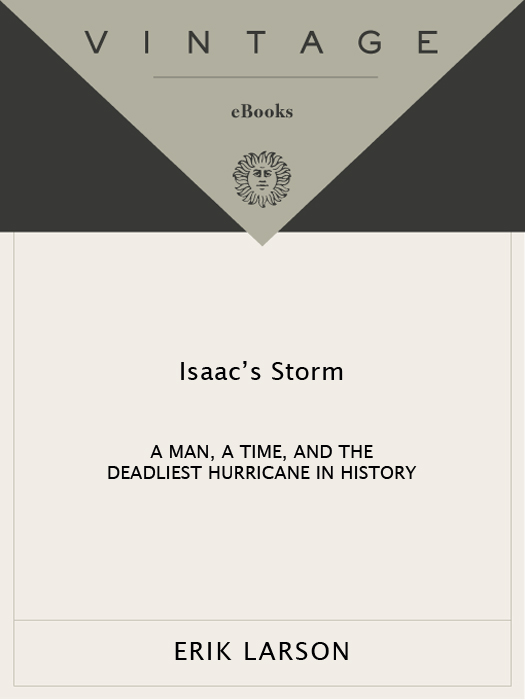
Isaac's Storm PDF
2011·1.0122 MB·other
Most books are stored in the elastic cloud where traffic is expensive. For this reason, we have a limit on daily download.
Preview Isaac's Storm
Description:
On September 8, 1900, a massive hurricane slammed into Galveston, Texas. A tidal surge of some four feet in as many seconds inundated the city, while the wind destroyed thousands of buildings. By the time the water and winds subsided, entire streets had disappeared and as many as 10,000 were dead--making this the worst natural disaster in America's history. In Isaac's Storm, Erik Larson blends science and history to tell the story of Galveston, its people, and the hurricane that devastated them. Drawing on hundreds of personal reminiscences of the storm, Larson follows individuals through the fateful day and the storm's aftermath. There's Louisa Rollfing, who begged her husband, August, not to go into town the morning of the storm; the Ursuline Sisters at St. Mary's orphanage who tied their charges to lengths of clothesline to keep them together; Judson Palmer, who huddled in his bathroom with his family and neighbors, hoping to ride out the storm. At the center of it all is Isaac Cline, employee of the nascent Weather Bureau, and his younger brother--and rival weatherman--Joseph. Larson does an excellent job of piecing together Isaac's life and reveals that Isaac was not the quick-thinking hero he claimed to be after the storm ended. The storm itself, however, is the book's true protagonist--and Larson describes its nuances in horrific detail. At times the prose is a bit too purple, but Larson is engaging and keeps the book's tempo rising in pace with the wind and waves. Overall, Isaac's Storm recaptures at a time when, standing in the first year of the century, Americans felt like they ruled the world--and that even the weather was no real threat to their supremacy. Nature proved them wrong. --Sunny Delaney
See more
The list of books you might like
Most books are stored in the elastic cloud where traffic is expensive. For this reason, we have a limit on daily download.
